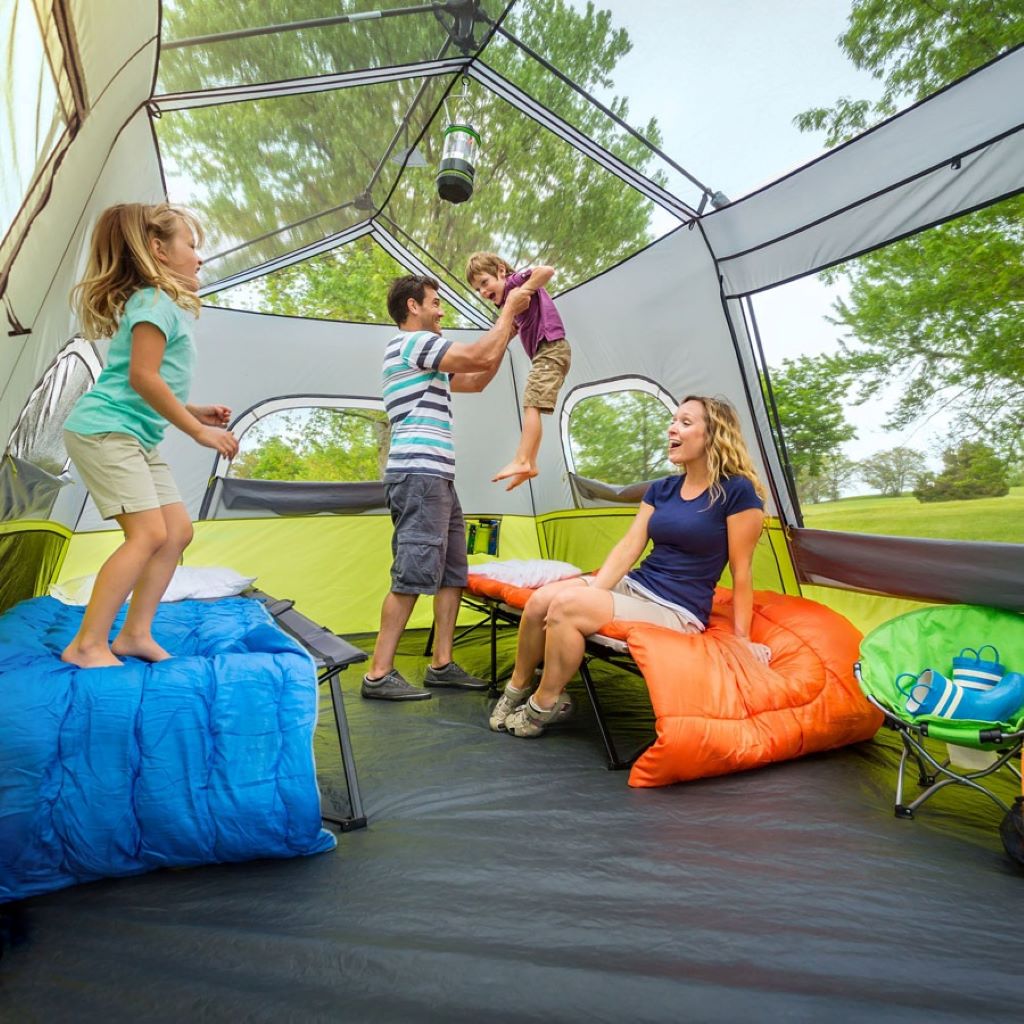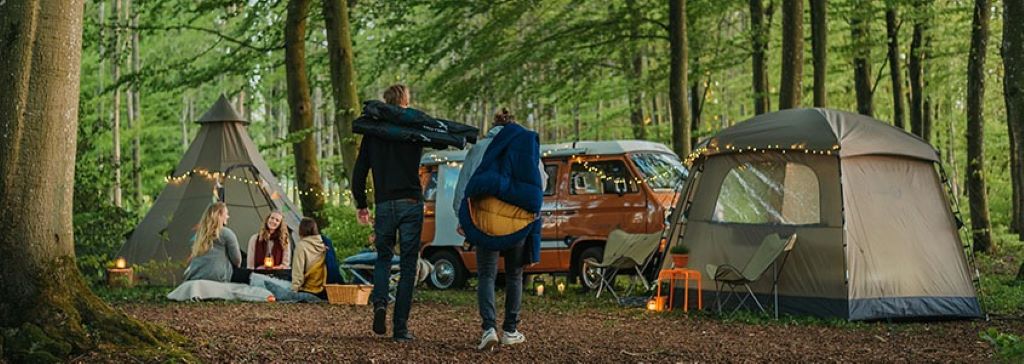Family camping trips create lasting memories while connecting us with nature’s beauty. However, traditional camping gear often harms the environment we seek to enjoy. Eco Friendly Party advocates believe sustainable camping practices protect natural spaces for future generations. Therefore, choosing environmentally responsible gear makes camping more enjoyable and less harmful.
Why Choose Eco-Friendly Camping Gear
Sustainable camping equipment reduces environmental impact while often providing superior performance. Many eco-conscious families discover that green alternatives last longer than conventional options. Additionally, investing in quality eco-friendly outdoor gear supports companies committed to environmental protection.
Furthermore, children learn valuable lessons about environmental stewardship when families use sustainable camping equipment. These experiences shape their understanding of responsible consumption and care for natural spaces.
Essential Sustainable Sleeping Solutions
Comfortable sleep remains crucial for successful family camping trips. Fortunately, many manufacturers now produce sleeping gear from recycled and sustainable materials.
Organic Cotton Sleeping Bags
Organic cotton sleeping bags offer excellent temperature regulation without synthetic chemicals. These bags breathe better than petroleum-based alternatives, reducing nighttime overheating. Additionally, organic cotton production uses fewer pesticides and harmful chemicals than conventional cotton farming.
Recycled Foam Sleeping Pads
Modern sleeping pads made from recycled foam provide excellent insulation and comfort. These pads match the performance of traditional options while diverting waste from landfills. However, check the R-value ratings to ensure adequate insulation for your camping conditions.
Sustainable Pillow Options
Inflatable pillows made from recycled materials offer compact storage and customizable comfort. Some companies produce pillows filled with organic buckwheat hulls or recycled down alternatives. Therefore, families can choose options that match their comfort preferences and environmental values.
Eco-Conscious Cooking Equipment
Preparing meals outdoors becomes more sustainable with the right equipment choices. Modern eco-friendly cooking gear performs excellently while minimizing environmental impact.
Solar-Powered Cooking Solutions
Solar ovens and cookers harness renewable energy for meal preparation. These devices work well for slow-cooking meals during sunny conditions. Additionally, solar cooking eliminates the need for fuel consumption and reduces fire risks in dry environments.
Efficient Wood-Burning Stoves
Modern wood-burning camping stoves burn fuel more completely than traditional campfires. These stoves produce less smoke and ash while using readily available biomass. Furthermore, efficient combustion means less wood collection and reduced impact on local ecosystems.
Biodegradable Plates and Utensils
Compostable dinnerware eliminates washing needs while reducing waste. Modern biodegradable options perform well and break down quickly in appropriate conditions. However, remember that “biodegradable” doesn’t mean these items can be left in nature.
Water Management and Filtration
Access to clean water remains essential for family camping safety. Sustainable water management reduces plastic waste while ensuring adequate hydration.
Portable Water Filtration Systems
High-quality water filters eliminate the need for bottled water during camping trips. Modern filtration systems remove bacteria, viruses, and chemicals from natural water sources. Therefore, families can safely drink from streams and lakes while reducing plastic consumption.
Stainless Steel Water Bottles
Durable stainless steel bottles last for years while maintaining water temperature. These bottles eliminate single-use plastic waste and often perform better than disposable alternatives. Additionally, many models include built-in filtration or purification capabilities.
Greywater Management Solutions
Portable greywater systems allow responsible disposal of washing and cooking water. These systems filter and treat wastewater before release, protecting local water sources. Furthermore, proper greywater management prevents soap and food particles from contaminating natural areas.

Sustainable Lighting Options
Adequate lighting ensures safety and comfort during evening camping activities. Eco-friendly lighting solutions provide excellent illumination while minimizing energy consumption.
Solar-Charged Lanterns
Solar lanterns charge during daytime hours and provide hours of evening illumination. Modern LED technology makes these lights incredibly efficient and long-lasting. Additionally, many models include USB charging ports for small electronics.
Hand-Crank Emergency Lights
Manual charging eliminates battery waste while ensuring reliable lighting. Hand-crank lights work regardless of weather conditions and never run out of power. Therefore, these lights provide excellent backup illumination for extended camping trips.
Beeswax Candles
Natural beeswax candles create ambiance while avoiding petroleum-based paraffin. These candles burn cleaner and longer than conventional alternatives. However, always use proper fire safety practices and extinguish candles before sleeping.
Clothing and Personal Items
Sustainable clothing and personal care products enhance comfort while reducing environmental impact. Many eco-friendly options outperform conventional alternatives in outdoor conditions.
Merino Wool Base Layers
Merino wool naturally regulates temperature and resists odors without chemical treatments. This renewable fiber performs excellently in various weather conditions. Additionally, merino wool continues insulating even when wet, unlike synthetic alternatives.
Organic Cotton Clothing
Organic cotton camping clothes avoid pesticide residues while providing comfort and breathability. These garments wash easily and dry quickly in outdoor conditions. Furthermore, organic production supports healthier farming practices and soil conservation.
Biodegradable Soap and Toiletries
Eco-friendly personal care products break down safely in natural environments. These products clean effectively without harming local water sources or wildlife. However, always use biodegradable soaps at least 200 feet from water sources to prevent contamination.
Games and Entertainment
Sustainable entertainment options keep families engaged without electronic dependencies. According to National Geographic, spending time in nature provides significant mental health benefits while building environmental awareness.
Natural Material Games
Games made from wood, bamboo, or recycled materials provide hours of entertainment. These durable options often last longer than plastic alternatives while teaching children about sustainable materials. Additionally, natural games blend better with outdoor environments.
Educational Nature Guides
Field guides and nature identification books enhance outdoor learning experiences. These resources help families understand local ecosystems and wildlife. Furthermore, increased nature knowledge builds stronger connections to environmental conservation.
Waste Management Solutions
Proper waste management protects natural areas while maintaining campsite cleanliness. Sustainable waste practices ensure these beautiful locations remain pristine for future visitors.
Reusable Storage Containers
Glass or stainless steel containers eliminate single-use packaging waste. These containers keep food fresh while avoiding plastic contamination. Additionally, clear containers make meal planning and organization easier.
Compost Systems
Portable composting solutions handle organic waste responsibly. Small compost containers break down food scraps safely without attracting wildlife. However, follow local regulations regarding composting in wilderness areas.
Pack-Out Waste Bags
Durable, reusable waste bags ensure nothing gets left behind. These bags make it easy to follow Leave No Trace principles throughout your trip. Furthermore, designated waste bags prevent accidental littering and keep campsites organized.
Budget-Friendly Eco Gear Tips
Sustainable camping doesn’t require expensive equipment purchases. Many eco-friendly solutions cost less than conventional alternatives while providing better performance.
DIY Solutions
Homemade gear often outperforms store-bought alternatives at fraction of the cost. Simple projects like beeswax fire starters or fabric food wraps save money while reducing waste. Additionally, DIY projects teach children valuable skills and environmental awareness.
Second-Hand Equipment
Used outdoor gear often provides excellent value while extending product lifecycles. Many camping items see limited use and remain in excellent condition. Therefore, thrift stores and online marketplaces offer great deals on sustainable gear options.
Multi-Purpose Items
Choosing gear that serves multiple functions reduces overall equipment needs. Versatile items save money, reduce pack weight, and minimize resource consumption. Furthermore, fewer items mean less to lose or maintain during camping trips.
Conclusion
Sustainable family camping enhances outdoor experiences while protecting the environments we love. Eco-friendly gear often outperforms conventional alternatives while teaching children valuable environmental lessons. Additionally, sustainable practices ensure natural areas remain beautiful for future generations. Therefore, investing in eco-conscious camping equipment benefits both families and the planet. Furthermore, many sustainable options provide better value through improved durability and performance. Remember that small changes in gear choices create significant positive environmental impacts over time.
Frequently Asked Questions
Q: Is eco-friendly camping gear more expensive than traditional options? A: While some sustainable gear has higher upfront costs, it often lasts longer and performs better. Additionally, many eco-friendly options like DIY solutions and second-hand equipment cost less than new conventional gear.
Q: How do I know if camping gear is truly environmentally friendly? A: Look for certifications from organizations like bluesign or OEKO-TEX. Additionally, research company sustainability practices and material sourcing. However, be cautious of vague “green” marketing claims without specific details.
Q: Can eco-friendly camping gear handle extreme weather conditions? A: Yes, many sustainable materials like merino wool and organic cotton perform excellently in challenging conditions. Modern eco-friendly gear often exceeds the performance of synthetic alternatives while providing environmental benefits.
Q: What should I do with worn-out eco-friendly camping gear? A: Many sustainable gear manufacturers offer recycling programs for their products. Additionally, natural materials like organic cotton and wool can often be composted safely. However, check local guidelines for proper disposal methods.
Q: How can I convince my family to switch to sustainable camping gear? A: Focus on performance benefits rather than just environmental aspects. Additionally, involve children in choosing gear and explain how sustainable choices protect their favorite camping locations. Furthermore, start with small changes and gradually transition to more eco-friendly options.
Read More:
Why Everyone Should Meditate at Least Once a Day
The Many Benefits of a Multi Network Sim Card
